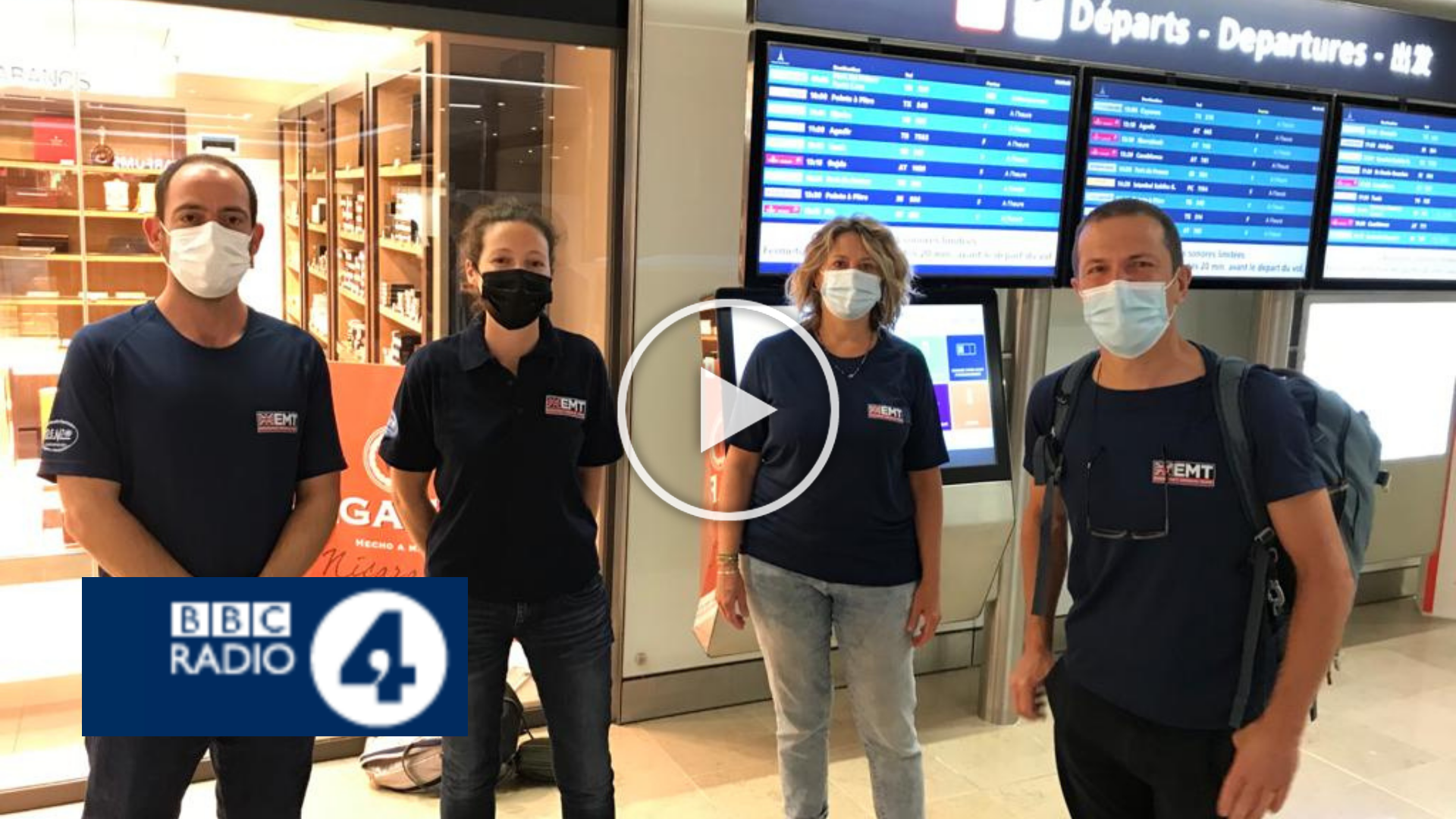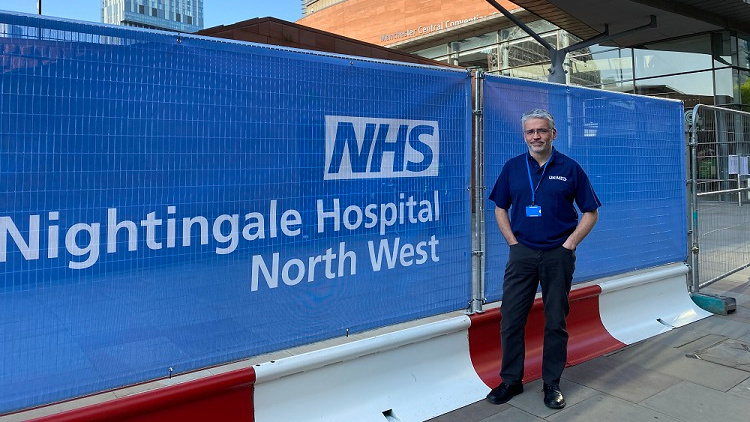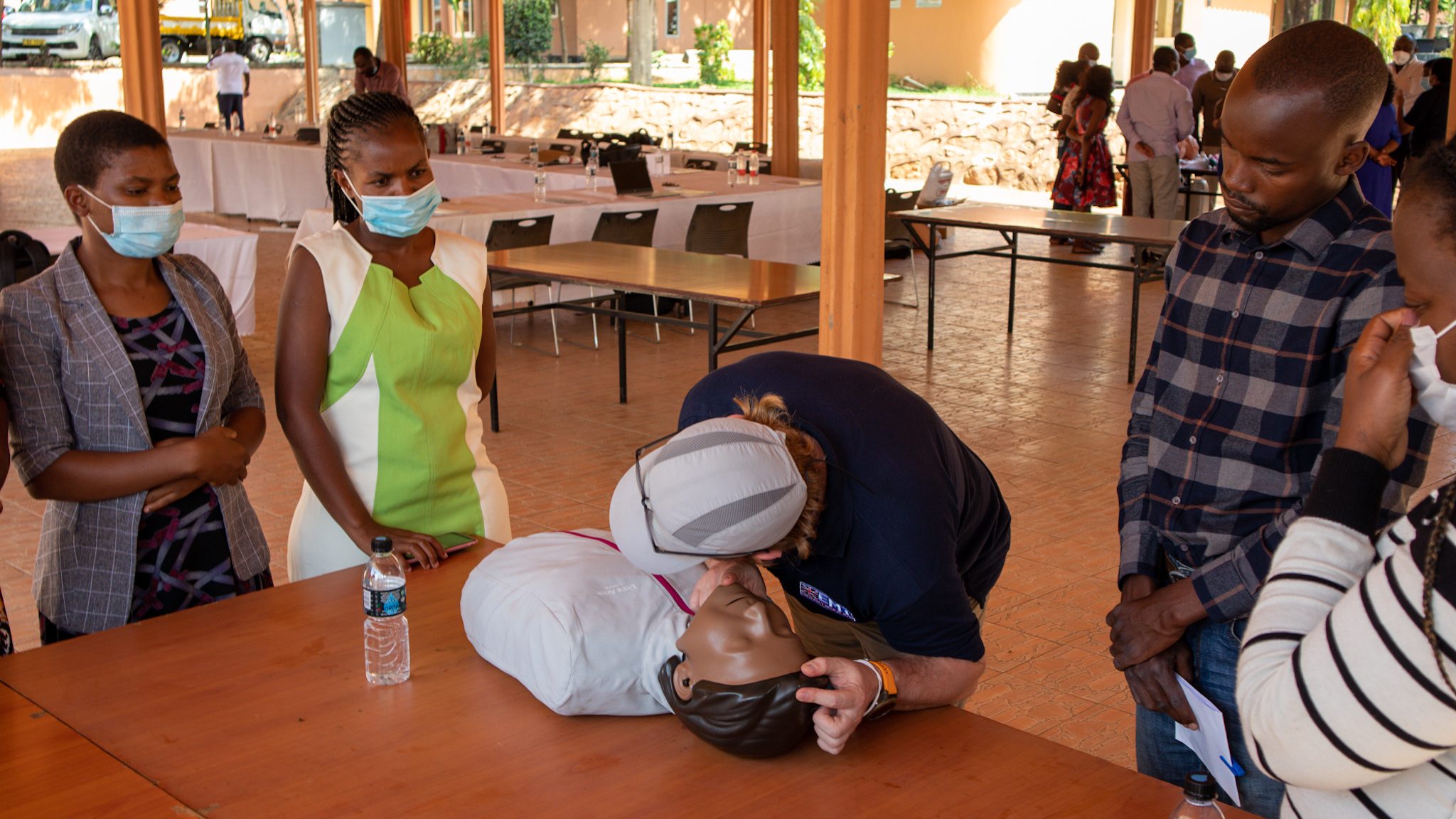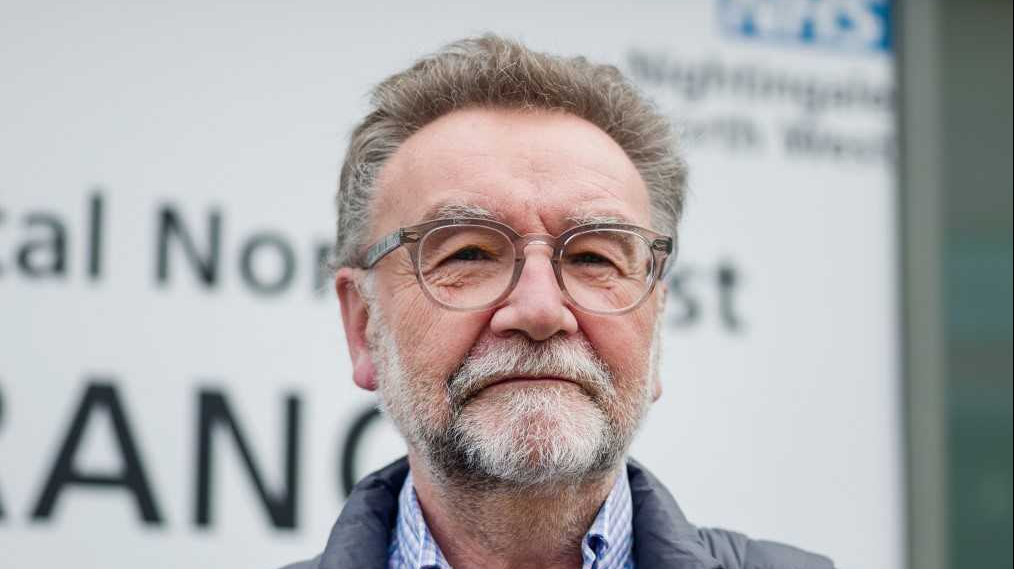
The country has just had so many setbacks over the last years. I think the second large earthquake, and then Hurricane Grace on top of that, has made the roads more difficult to pass.
Paul Ransom, Medical Coordinator for the assessment team on the ground in Haiti, spoke to BBC Radio 4 this morning on the current situation and the work that the team are carrying out.
Paul is an Emergency Medicine Consultant in a busy Major Trauma Centre in Brighton. He has extensive experience working in conflict and post-conflict affected countries, including Cambodia, Afghanistan, Kosovo, Cote d’Ivoire, Palestine and Angola. He was part of the UK EMT response in Armenia last year as well as a capacity-building visit to Myanmar.
The crisis in Haiti
The health needs in Haiti are quite extensive, and the area itself is logistically challenging, with damaged roads limiting the number of people who can access the affected areas. Paul explains in more detail the challenges the team are facing:
“The country has just had so many setbacks over the last years. I think the second large earthquake, and then Hurricane Grace on top of that, has made the roads more difficult to pass.
There’s been flooding in some areas, and it’s certainly hampered the relief efforts, but also just for the lives of the people who have been made homeless – and to deal with the rain and the floods after that, it’s a really difficult time. I just hope we can assist the Haitian people in their struggles at the moment because they’ve really been having a difficult time.”
As of 20th August 2021, over 10,000 injuries and 2000 deaths have been reported, and that number is expected to increase, particularly in rural areas.
It will go on for quite a few weeks and months afterwards, and with that goes real need for rehabilitation as well.
There have been more than 700 collapsed buildings, including hospitals, schools and churches, thousands of destroyed homes, and many people left seeking refuge in shelters. Paul spoke to Radio 4 about the needs that him and the team are expecting to see during their rapid needs assessment:
“We’re expecting there is going to be probably quite a bit of surgical need, and also some need for diarrheal illness and respiratory illness, and almost certainly COVID on top of that.
It’s going to be quite a spread of needs that we’re anticipating over there coming days, weeks and months in these affected areas.”
Complexities on the ground
The team will be assessing the health needs of the area and the current state of medical facilities to see where the needed treatments and surgeries can take place. Paul explained the complexities of surgical treatment in more detail:
“[There are] often orthopaedic and plastic surgery needs. I think one of the things to remember about this is if you have surgical operation, it’s not often just one, so probably about 50% of people that have one surgical operation under this earthquake conditions are going to have several more… it’s not just a quick fix.
It will go on for quite a few weeks and months afterwards, and with that goes real need for rehabilitation as well.
I really feel for our colleague doctors and nurses have been trying to look after those patients over the last months and years in those difficult circumstances. It’s going to be far more difficult for them now.”






No Comments